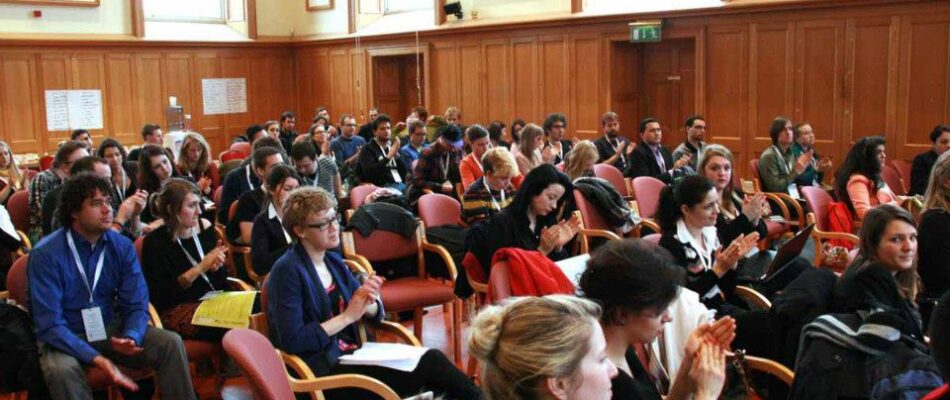
Europe must do more on the Social Dimension of Higher Education
DUBLIN – More than one hundred students and students‘ representatives from across Europe participated in the 25th European Students‘ Convention where they challenged each other in discussions about the social dimension and equality of higher education in times of immense economic pressures. This debate took place in Dublin from 7 to 11 March.
A stirring welcoming address from Councillor Cian O’Callaghan, the Mayor of Fingal and former officer of USI (the Union of Students in Ireland), challenged students to do more to continue the decades of campaigning and activism up until now, and ensure that mass higher education moves closer to becoming universal.
A number of experts and policy makers in the higher education field were invited to speak at the convention as panelists, opening up for questions from students that led to interesting debates on the future of higher education in Europe.
One common problem
Nat O’Connor, of the progressive think-tank TASC presented the stark and chilling economic data that shapes all policy-making in this area, as Ireland has a bulging demographic growth of young people who will try to enroll in higher education in the next decades, unique for the 27 EU Member States. Most of Europe deals with the opposite development, meaning decreasing numbers of young people that will work, pay taxes and support public services in the future.
Although national contexts differ, the challenges being faced and addressed by national unions of students all share one common problem – there is simply not enough money to sustain existing programmes, let alone enough to expand more. Governments across Europe are neglecting higher education, and access rates are suffering as a result.
Importance of quality assurance
Quality assurance plays a large role in ensuring that students from diverse and non-traditional backgrounds have the capacity to excel in education. A presentation delivered by Dr Norma Ryan from University College Cork forced the participants to think about how active or inactive policies and strategies impact students participation. This is a theme that has been followed up by the innovative KYKY project, run by the Finnish national union of students SYL.
.
Disability and minorities
Sustaining equality of access to higher education is a complex issue and it is crucial that policy makers and representatives grasp the sticky problems confronted by attempts to treat everyone the same. However, actively being as accommodating as possible limits the potential for invisible or unintentional discrimination and allowing the conditions for equality, rather than uniformity to flourish. This is especially true of students with disabilities, as Ger Gallagher a student activist in Dublin, and Niamh Hayes of the LINK network of higher education disability groups in Europe, brought to light.
Ethnic minorities, migrants and national ethnic groups face dramatic challenges in even accessing higher education. The case studies of the Irish Traveller community and the children of non-EU migrant workers highlighted the simple fact that even reaching university is a huge achievement, and constant support is needed as well as action to eliminate those barriers which have been artificially erected by national or institutional policy.
Message to the EU Council
The education committee of the EU Council put forward conclusions on the social dimension just days after the ESU delegates departed Dublin. These conclusions were highly informed by the outcomes and conclusions of the 25th European Students’ Convention, that challenged ministers to take action on the social dimension, rather than letting the equality agenda suffer a slow death in the hands of fiscal rectitude.
Many countries do not have coherent action plans on how to go about reaching exact demographic mirroring in higher education – a target agreed by the ministers of the European Higher Education Area in 2007 saying they would “share the societal aspiration that the student body entering, participating in and completing higher education at all levels should reflect the diversity of our population” That strategic planning is inconsistent and often entirely absent.
The European Students’ Union concluded the meeting by calling conclusively for every government in Europe to develop and implement national plans for access to higher education, and insist on holding themselves to the standards they agreed in London six years ago and emphasised in Bucharest only ten months ago.
— END —
For more information, please contact:
Karina Ufert, ESU Chairperson: +32/473.669.892 // karina@esu-online.org or Robert Hlynur Baldursson, ESU Communications Manager: +32/473.669.894 // robert@esu-online.org

The European Students’ Union, headquartered in Brussels, is the umbrella organisation of 47 national unions of students from 39 European countries. ESU represents and promotes the educational, social, economical and cultural interests of students at the European level. Through its member unions, ESU represents over 11 million students in Europe. To find out more about ESU, follow us on Twitter @ESUtwt, check out or Facebook page or visit www.esu-online.org. ESU celebrates its 30th anniversary in 2012.
